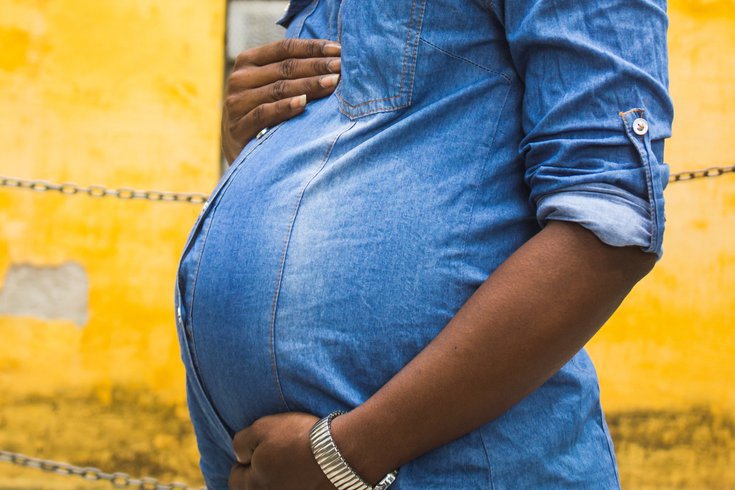
June 28, 2023
 Thiago Borges/Pexels
Thiago Borges/Pexels
To reduce maternal deaths in Pennsylvania, the Department of Health will begin annually tracking pregnancy and birth-related health complications under a bipartisan bill expected to be signed by Gov. Josh Shapiro.
Pennsylvania will begin tracking pregnancy and childbirth complications as part of a larger effort to reduce maternal death rates.
The Department of Health will be required to annually publish data on severe maternal morbidity – unexpected pregnancy and childbirth outcomes that result in short- or long-term health issues – under a bill that was passed unanimously by the General Assembly this month. Gov. Josh Shapiro will sign it, a spokesperson said Wednesday.
The Department of Health will work directly with the Pennsylvania Maternal Mortality Review Committee, a 14-member panel tasked with reviewing maternal deaths, identifying their root causes and developing ways to reduce maternal deaths, pregnancy complications and racial disparities associated with pregnancy. The committee was established by a 2018 law.
The health department will publish severe maternal morbidity data by using information gathered from hospital discharges. The committee then will use the data to issue recommendations on how to reduce maternal health complications and prevent deaths.
The measure will take effect 90 days after Shapiro signs the bill.
Pennsylvania's maternal death rate was 10.9 deaths per every 100,000 live births from 2015 to 2019, according to committee data.
"Maternal morbidity rates are trending in the wrong direction and it's getting worse each year," said Rep. Morgan Cephas, of Philadelphia. "The first step in combatting the problem is proper data collection. Accurate and regular tracking is essential for comprehensive research on this complex medical issue. We need to fully understand the outcomes of all birthing people as we work to improve maternal care and maternal health outcomes."
The United States has the highest maternal death rate among affluent countries. There were 32.9 deaths per 100,000 live births in 2021, the highest rate in the United States since 1965. That was up from 23.8 in 2020 and 20.1 in 2019. Overall, 1,205 women died during childbirth or in the six weeks afterward in 2021, an increase from 861 in 2020 and 754 in 2019.
Chronic conditions, poor health care access, structural racism and implicit bias are among the factors that contribute to high maternal death rates. the shuttering of obstetric facilities in rural areas also contributes, because families have to travel further for high-quality medical care, according to the American Hospital Association.
For each maternal death in the U.S., about 100 people experience a severe health problem from being pregnant or giving birth, according to data from the U.S. Commission on Civil Rights. About 84% of pregnancy-related deaths in the U.S. are preventable, according to CDC data.
"Better tracking and reporting will ensure that Black mamas and birthing individuals are heard," said Rep. La'Tasha D. Mayes, of Allegheny County. "We know that Pennsylvania needs more people in the medical and perinatal field who look like the people they are working alongside to deliver healthy babies and eliminate birth outcome disparities. This data can help us identify the areas where we need more professionals, such as doulas, who can provide emotional, informational and physical support before, during and after childbirth."
Tori Bowie, a track star who earned a silver medal in the 100 meter dash at the 2016 Olympics, died earlier this year from respiratory distress and eclampsia, a disorder related to high blood pressure during pregnancy. The news of the 32-year-old's death sparked a renewed conversation about the maternal death rate among Black Americans, which is 2.6 times higher than the rate for white women.
The maternal death rate among Black women is 69.9 deaths per 100,000 live births, according to the CDC. Multiple factors contribute to the disparities faced by Black women, including variation in quality health care and social determinants that prevent minority groups from having fair opportunities for economic, physical and emotional health.
"Tori Bowie's tragic death shows that a person's social or economic situation does not matter in our nation's maternal mortality crisis, especially for Black women," said Rep. Gina H. Curry, of Delaware County. "Tori's birthing journey should not have ended in the way that it did. Most pregnancy-related complications are treatable if detected. The more data we collect, the better prepared we'll be to ensure that all people, no matter where they live or what they look like, have the research, resources and support behind them as they move through their birthing journey."
In April, Philadelphia officials announced the city's Department of Public Health would soon begin tracking severe maternal health complications too, as the city's maternal morbidity rate continues to outpace the national average. A 2021 report from the city's Maternal Mortality Review Committee found that Black women accounted for 73% of pregnancy-related deaths in Philadelphia from 2013 to 2018, despite accounting for just 43% of births.